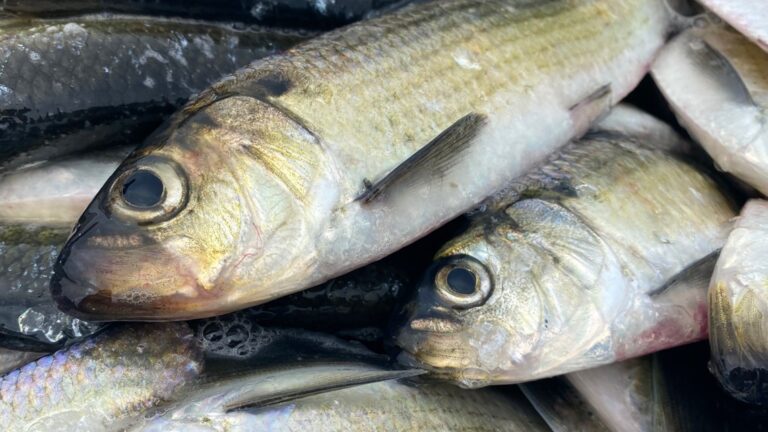
Sustainability efforts from fishermen and the state show their run is back and better than ever.
BENTON, MAINE, Maine — Jim Wotton and his crew of 10 prepare the day of fishing by ziplining hundreds of crates from the cliffside onto the jagged rocks below the Sebasticook River Dam in Benton, Maine.
“We come up here every day at 9 or 10 in the morning, we get ready for the day, make our orders. … The amount we catch is based on what we need for the day,” Wotton said.
Sunday is range of orders, according to Wotton. He said some of the fish they catch today will go to Canada, while others head to Maine’s many coastal communities.
“It provides a valuable resource to the fishermen of the state,” Wotton said.
He is talking about alewives.
The fish, much like a salmon, returns from the ocean to lakes and ponds to spawn, but damn construction has led to dwindling populations.
The alewife serves many purposes, according to Wotton. They are used as spring bait for lobstermen, smoked and eaten by locals, and they feed the local ecosystem of eagles.
“It’s gone up and down, but the state has done a good job at managing the resource,” Wotton said.
Part of that management comes with dam technology.
Logan Shepherd with the Benton dam operates the flume for the fish to travel through.
“It’s pretty much essential,” Shepherd said. “If this wasn’t here, the alewives wouldn’t be able to get up over the dam.”
Alewife runs are estimated to last until June. Wotton said this season is on track to be successful for the industry.
“We always have big years up here, but this year is one of the better ones. We are on track to break the record,” Wotton said.
Fishermen in Benton told NEWS CENTER Maine that if alewives continue to be in abundance, then bait prices will go down, which could perhaps bring down the local price of lobster.